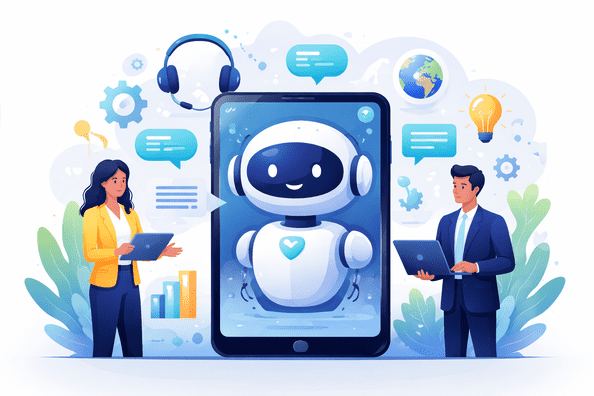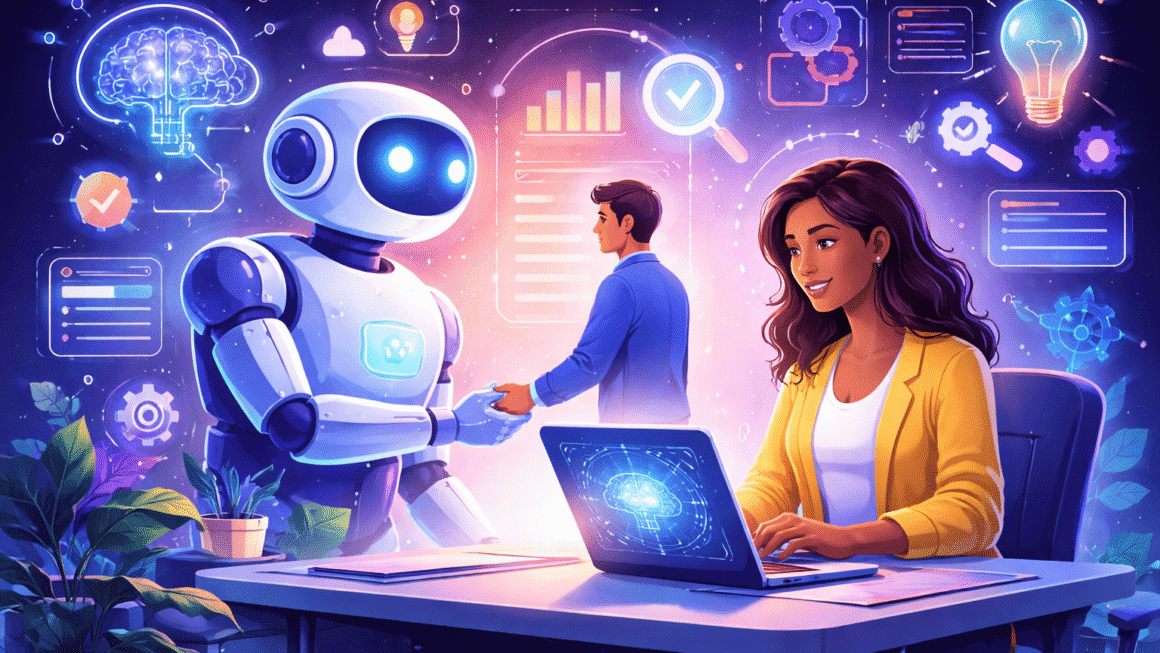Artificial Intelligence (AI) is no longer a futuristic concept reserved for glossy sci-fi blockbusters. It is woven into the fabric of daily life—from voice assistants that set your reminders to recommendation engines that curate your favorite shows. In India, with its deep talent pool and aspirational youth demographic, the potential to lead in AI innovation is immense. But a crucial question remains: how do we prepare millions of school-goers for this AI-driven tomorrow? Enter CBSE AI Bootcamps, an ambitious initiative by the Central Board of Secondary Education to equip students with hands-on experience in AI. These bootcamps matter not only because they teach algorithms and code; they foster creativity, critical thinking, and a collaborative spirit—traits that will define India’s future workforce.
Bridging the Theory–Practice Gap
From Classroom Concepts to Real-World Solutions
A long-standing challenge in Indian STEM education is that students often learn theory in isolation. Concepts like neural networks, regression models, or natural language processing are dissected in textbooks, but their real-life applications remain abstract until college or beyond. CBSE AI Bootcamps break down this barrier. Over intensive workshops lasting weeks or months, participants move from learning Python basics to building chatbots that understand Hindi commands, designing image-recognition systems to sort recyclable waste, or crafting sentiment-analysis tools for local dialects. By bridging theory and practice early, students evolve from rote learners to problem solvers.
Success Story: Waste-Management Bot in Pune
In 2024, a cohort of Class 10 students from a Pune CBSE school collaborated with local civic volunteers to develop “Saafghar,” an AI-powered waste-sorting robot prototype. Drawing on webcam image processing and simple pick-and-place robotics, their prototype achieved 85% sorting accuracy in trials. Beyond the technology, students liaised with municipal workers, learned about ground-level waste challenges, and presented their solution to the city council. That project exemplified how bootcamps convert abstract AI theory into tangible social impact.
Nurturing Future-Ready Skills
Cultivating Critical Thinking and Creativity
AI is not just code; it’s a mindset. Bootcamp exercises often start with open-ended challenges—“How might we use AI to improve rural healthcare?”—encouraging divergent thinking before converging on a feasible prototype. Such design-thinking modules sharpen critical reasoning: students research community needs, ideate multiple solutions, and iteratively test hypotheses. This creative process prepares them for complex problem-solving, whether in entrepreneurship, research, or large corporations.
Collaboration Across Disciplines
Effective AI innovations require cross-functional teamwork. A natural-language project might pair a coder with a linguist to fine-tune chatbot responses; a health-tech solution could unite a biology enthusiast with a data analyst. CBSE AI Bootcamps deliberately assemble diverse teams, mirroring real-world environments where engineers, domain experts, and designers collaborate. Students learn soft skills—communication, empathy, time management—that are as critical as technical prowess.
Democratizing Access to Advanced Learning
Overcoming Resource Constraints
Top-tier private schools in metropolitan areas often boast computer labs and tie-ups with ed-tech firms, but thousands of government and rural schools lack basic infrastructure. CBSE’s model includes mobile AI labs—vans equipped with power backup, laptops, and internet connectivity—that tour under-resourced districts. Local educators receive “train-the-trainer” sessions, empowering them to sustain AI clubs post-bootcamp. This approach narrows the urban–rural divide, enabling students from remote villages to tap into the same high-quality curriculum.
Scaling Through Online-Offline Hybrids
During peak pandemic years, CBSE piloted a hybrid bootcamp format: live online lectures complemented by local mentors guiding hands-on labs. This proved scalable—Bootcamp sessions reached over 100,000 students across 27 states in 2023, with completion rates above 75%. The blend of synchronous and asynchronous learning also teaches students digital self-discipline, preparing them for global online courses and remote work.
Aligning Education with Industry Needs
Industry Partnerships for Cutting-Edge Insights
Through collaborations with tech companies, research labs, and startups, CBSE AI Bootcamps stay abreast of emerging AI trends. Industry experts deliver masterclasses on topics like generative AI, ethical considerations in model deployment, and AI for sustainability. Students gain exposure to real-world tools—TensorFlow, PyTorch, cloud-based APIs—and work on mini-projects mirroring corporate R&D sprints. This synergy ensures CBSE’s curriculum remains dynamic and industry-relevant, rather than static textbook fare.
Pathways to Internships and Careers
Several tech firms have begun offering internships to top bootcamp participants. For instance, a cohort of Class 12 students from Hyderabad was invited to intern at a local AI startup developing crop-monitoring drones. Such early industry immersion accelerates career readiness and builds confidence. As India aims to become a global AI hub, these bootcamps create a pipeline of skilled, motivated talent ready to shoulder real responsibilities from day one.
Fostering Ethical and Inclusive AI
Embedding Responsible AI Principles
With great power comes great responsibility. CBSE AI Bootcamps weave ethics modules into their syllabus, prompting students to consider bias, data privacy, and societal impact. In one exercise, students audit a face-recognition dataset for gender and skin-tone bias, then propose mitigation strategies. These reflective sessions ensure tomorrow’s AI practitioners value fairness and transparency, crucial for technologies that touch millions.
Empowering Diverse Voices
India’s diversity is its strength—but AI tools often under-serve minority languages and communities. Bootcamp projects purposely include regional languages—Tamil, Marathi, Assamese—in speech-recognition exercises, and address local challenges like flood prediction in Kerala or heritage preservation in Varanasi. By championing inclusive design, bootcamps empower students to build AI systems that uplift marginalized groups, ensuring that technological progress benefits every corner of the nation.
Cultivating Lifelong Learning and Research
Beyond Bootcamps: AI Clubs and Hackathons
Completion of a bootcamp is just the beginning. CBSE encourages schools to establish AI clubs where alumni mentor juniors, host hackathons, and invite guest speakers. These sustained communities foster peer learning and keep students abreast of new AI breakthroughs. Annual national hackathons attract over 5,000 participants, with awards recognizing innovative solutions in healthcare, agriculture, and education.
Seeding Research in Higher Education
Some bootcamp alumni carry their projects into science fairs and competitive research conferences. In 2025, a team of former bootcampers published a paper on “Low-Resource Language Translation for Tribal Dialects” at an international workshop in Singapore—an accolade that would have been improbable without early AI exposure. Such research accomplishments bolster India’s academic reputation and inspire more students to pursue advanced degrees in AI and data science.
Overcoming Challenges and Looking Ahead
Addressing Infrastructure and Quality Variations
While mobile labs and hybrid models have widened reach, consistent connectivity and hardware shortages persist in remote regions. CBSE is collaborating with state governments to upgrade digital infrastructure and distribute low-cost AI kits. Quality assurance also demands regular training for local mentors to maintain curriculum standards.
Ensuring Curriculum Relevance
AI is a rapidly evolving field: yesterday’s hot topic may fade tomorrow. To stay current, CBSE convenes an annual AI Advisory Council—including educators, industry leaders, and academic researchers—to review and refresh the bootcamp syllabus. Proposed additions for 2026 include quantum machine learning modules and hands-on labs in AI-driven genomics.
Conclusion
CBSE AI Bootcamps represent more than an extracurricular program; they are a strategic investment in India’s human capital. By bridging theory and practice, democratizing advanced learning, aligning with industry needs, and fostering ethical innovation, these bootcamps equip students with the skills, mindset, and confidence to lead in an AI-powered world. As challenges like infrastructure gaps and curriculum upkeep are addressed, the program’s ripple effects—research breakthroughs, startup ventures, and social-impact projects—will only grow. For a nation poised to harness AI for inclusive growth, these bootcamps matter profoundly. They are the crucible where India’s next generation of AI innovators, entrepreneurs, and thought leaders are forged.



